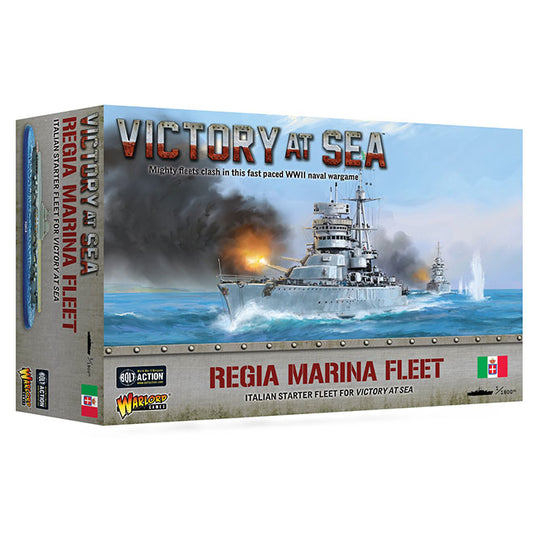


We will send you a notification as soon as this product is available again.
At the time of Italy’s entry into World War Two, she possessed a modern and – on paper at least – highly effective fleet. Four battleships and eight heavy cruisers were available, with three more battleships being fitted out. However, there were no aircraft carriers (initially), not least because the Regia Marina was intended to operate near to friendly air bases in Italy and Africa.As might be expected from a force operating among the islands of the Mediterranean, light forces were quite numerous, including 14 light cruisers, 128 destroyers and 62 motor torpedo boats, which was a weapon favoured by the Italians and well suited to local conditions. No less than 115 submarines were available. The main Italian naval base was at Taranto, home of the battleship force. Lighter groups were based out of ports on the Italian mainland, Sicily and the Red Sea.The Regia Marina was primarily tasked with interrupting British logistics and trade through the Mediterranean, and with keeping the Axis nations’ links to North Africa open. Major actions with the Royal Navy were not desirable nor really necessary for this mission to be carried out.Contents:
- Aquila-class Carrier - Aquila
- Conte di Cavour-class Battleship – Conte di Cavour 1940
- Etna-class cruiser – Etna 1942
- Zara-class cruiser – Pola 1940
- Luigi Cadorna-class cruiser – Luigi Cadorna 1940
- Navigatori-class Destroyer x3
- Torpedo-Bomber Aircraft – Reggiane RE.2001 Falco II x4 flights
- Ship Cards and Damage Sliders
- Assembly Instructions
What are miniatures used for in tabletop games?
How do I paint my miniatures?
What materials are miniatures typically made from?
How can I start collecting miniatures?
Where can I buy miniatures?
What are some tips for assembling miniatures?
Can miniatures be used in different games?
How should I store and transport my miniatures?
Are there any beginner-friendly miniature painting tutorials?
